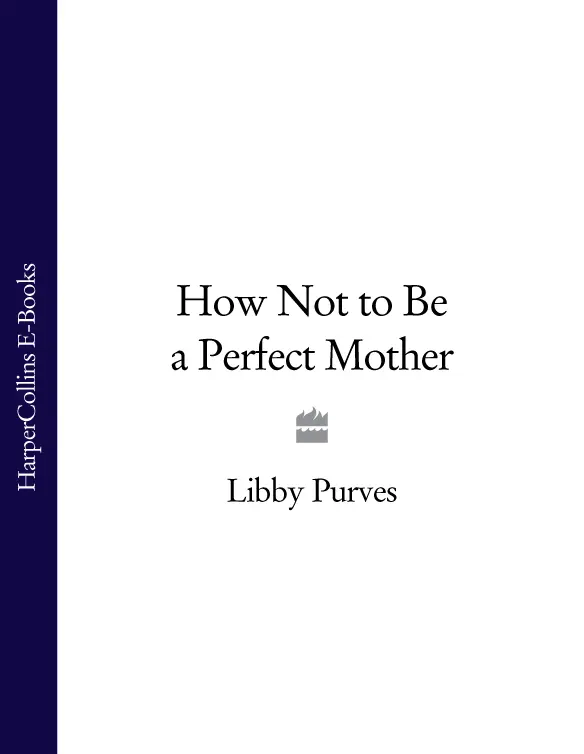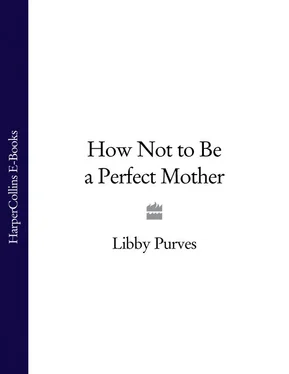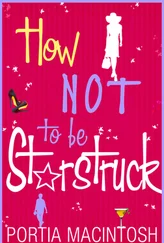
How NOT to Be a PERFECT MOTHER
Dedication Dedication Preface, 2004 Introduction 1. Pregnant, Proud and Panic-stricken 2. Hard Labour: Birth 3. Basket Babies: Infancy 4. From Bundle to Vandal: Bigger Babies 5. The Leaving of Little Ones 6. Double Shift: Working Mothers 7. A Tale of Two Nannies 8. Toddlers and Tornadoes 9. The Second Lap: Siblings 10. High Days and Holidays 11. Last Word Index Acknowledgements About the Author Other Works Copyright About the Publisher
To my children, and Paul
Cover
Title Page How NOT to Be a PERFECT MOTHER
Dedication Dedication Dedication Preface, 2004 Introduction 1. Pregnant, Proud and Panic-stricken 2. Hard Labour: Birth 3. Basket Babies: Infancy 4. From Bundle to Vandal: Bigger Babies 5. The Leaving of Little Ones 6. Double Shift: Working Mothers 7. A Tale of Two Nannies 8. Toddlers and Tornadoes 9. The Second Lap: Siblings 10. High Days and Holidays 11. Last Word Index Acknowledgements About the Author Other Works Copyright About the Publisher To my children, and Paul
Preface, 2004
Introduction
1. Pregnant, Proud and Panic-stricken
2. Hard Labour: Birth
3. Basket Babies: Infancy
4. From Bundle to Vandal: Bigger Babies
5. The Leaving of Little Ones
6. Double Shift: Working Mothers
7. A Tale of Two Nannies
8. Toddlers and Tornadoes
9. The Second Lap: Siblings
10. High Days and Holidays
11. Last Word
Index
Acknowledgements
About the Author
Other Works
Copyright
About the Publisher
I wrote this book because 20 years ago I needed to read it, and it wasn’t there. Contemplating my new son in his hospital cot, or struggling with his wakefulness during long, long nights, I wanted a book that acknowledged that I had feelings, too. I wanted someone to admit that perfection in motherhood is impossible, that not everything can be planned or scheduled, and that to get through the day with an infant all you need is love – which comes pretty easily to most of us – commonsense, good-humour and a great deal of rat-like cunning.
There were a lot of perfectionist baby-books around at the time, focused (understandably) on the needs of the child and frankly rather careless about the parents in charge. So, during the turbulent years while I had two children under three, I made notes. When I began writing, with the youngest in a basket under the table and the eldest rampaging round on a plastic Thomas the Tank Engine which took lumps of plaster off the kitchen wall, I was still in the thick of it, on the front line, hunched over a typewriter at the kitchen table. But I knew that I didn’t know it all, because we all lead different lives in different styles. So I began by circulating a rather tatty questionnaire round 50 mothers I knew. They were of different ages, types, incomes and generations, but all of them were women who seemed to me to be doing, or to have done in the past, a pretty good job of it.
I just asked how they handled the daily round – bathtime, tantrums, feeding, dressing, sleep, biting, the lot. Their answers were magnificently diverse, cheerful, fond, resigned and occasionally a bit bizarre. They encouraged me greatly. So I wrote this book, and launched it off into the world in the hope of sharing that encouragement and pleasure with other mothers. To my amazement it has never been out of print since, and has been translated into a dozen languages. Babies, clearly, are an international language. They do not change with passing fashions.
However, the century has turned and now the time seems ripe to examine and revise How Not to Be a Perfect Mother . Above all, baby equipment has changed: there were points that needed updating (when did you last see a carrycot?). In some ways the attitude to mothers has changed as well. In the early 1980s a baby was not yet the designer accessory it has become since. Film stars did not push buggies around where cameras might see them. Now that Rachel-from- Friends and Miranda-from- Sex-in-the-City brandish babies in fiction, and Madonna Ritchie and Catherine Zeta Jones are photographed toting infants with all the carefree style of pashminas or Prada bags, there is a new and different pressure. You may fall for the dangerous illusion that it is possible not only to be a perfect loving mother – and probably a worker too, for some of the time – but to remain chic and soignée as well, fit for a Hello! magazine spread. And that is just as much nonsense as the old idea that a grown-up busy working girl would mutate into a calm, milky household angel by the mere fact of giving birth.
Contemplating all this, it seemed a good moment to revise the book a little. I have not changed much, except a few tenses and some advice on modern equipment, because the essence of the original How Not to Be a Perfect Mother was that it came straight from the coalface of practical early motherhood. There is nothing more irritating to the new mother than being given sanctimonious advice by some middle-aged woman who gets enough sleep and whose children are big enough to be sent up ladders to fix bits of loose guttering. So I have tried to leave intact the original tone of the book, even when it verges on the mildly hysterical.
But I would also like to take the opportunity to say that the friendships and contacts I made in the years after this book was published have – however brief and fleeting some of them were – meant a great deal to me. This book has become, across ages and backgrounds and some national borders, a kind of club. We look one another in the eye—having met perhaps in some quite different context – and both say, ‘Yup. That’s how it was. That’s how it is, and always will be.’ The extraordinary, taxing, inspiring, despairing, exhausting and energizing experience of having a baby and caring for it through the infant years is something no mother ever forgets. And not many fathers, either. To all who went through it alongside me, and have shared the experience since and nodded in recognition of the way this book told it, I am happy to dedicate this new edition, with real love. And, as we say these days, respect!
A mother’s duty is quite clear: it is to be perfect. Mothers, as we all know, are sacred. They are sweet, loving, caring, self-denying madonnas. They are always there. They have tender bosoms and endless patience. A mother is like the legendary pelican, ripping her own breast to feed her young. Any mother would lay down her life for her child …
Well, yes, true enough. I am a mother, and I would lay down my life for my children; but I see no reason to do it every single day. Under the mantle of every mother lies an ordinary, disgruntled human being: there is no special saint-factory churning out tranquil and self-sacrificing madonnas. Every carefree, adventurous, selfish girl-in-the-street is at risk of being conscripted to wear a mother’s halo. And the transition from healthy adult selfishness to the status of maternal angel can be a painful one: rather like a butterfly trying to climb back into the chrysalis. It is that transition, in the early years, which is the subject of this book.
Nature helps the process along: in the first days, the urge to perfect pelicanhood is strong. When a baby is born, the average woman becomes chronically unselfish. The infant lies there in a plastic hospital cot, hypnotizing her with its beady blue eyes; and although she hurts all over and her head is still spinning, her baby’s willpower can bend her exhaustion to its demands. It sucks busily, works out its own sleeping schedule with reference to nobody, wets its nappy whenever it feels like it, and feeds eccentrically – three times an hour and then not for ages. Place any small obstacle in the path of the baby’s inexorable will and it will scream at a pitch carefully programmed to exact immediate maternal obedience. It demands conversation at midnight but falls rudely asleep in the middle of Granny’s best nursery rhyme; a baby has no manners, no consideration, and no responsibilities. It just gets on with growing bigger.
Читать дальше













